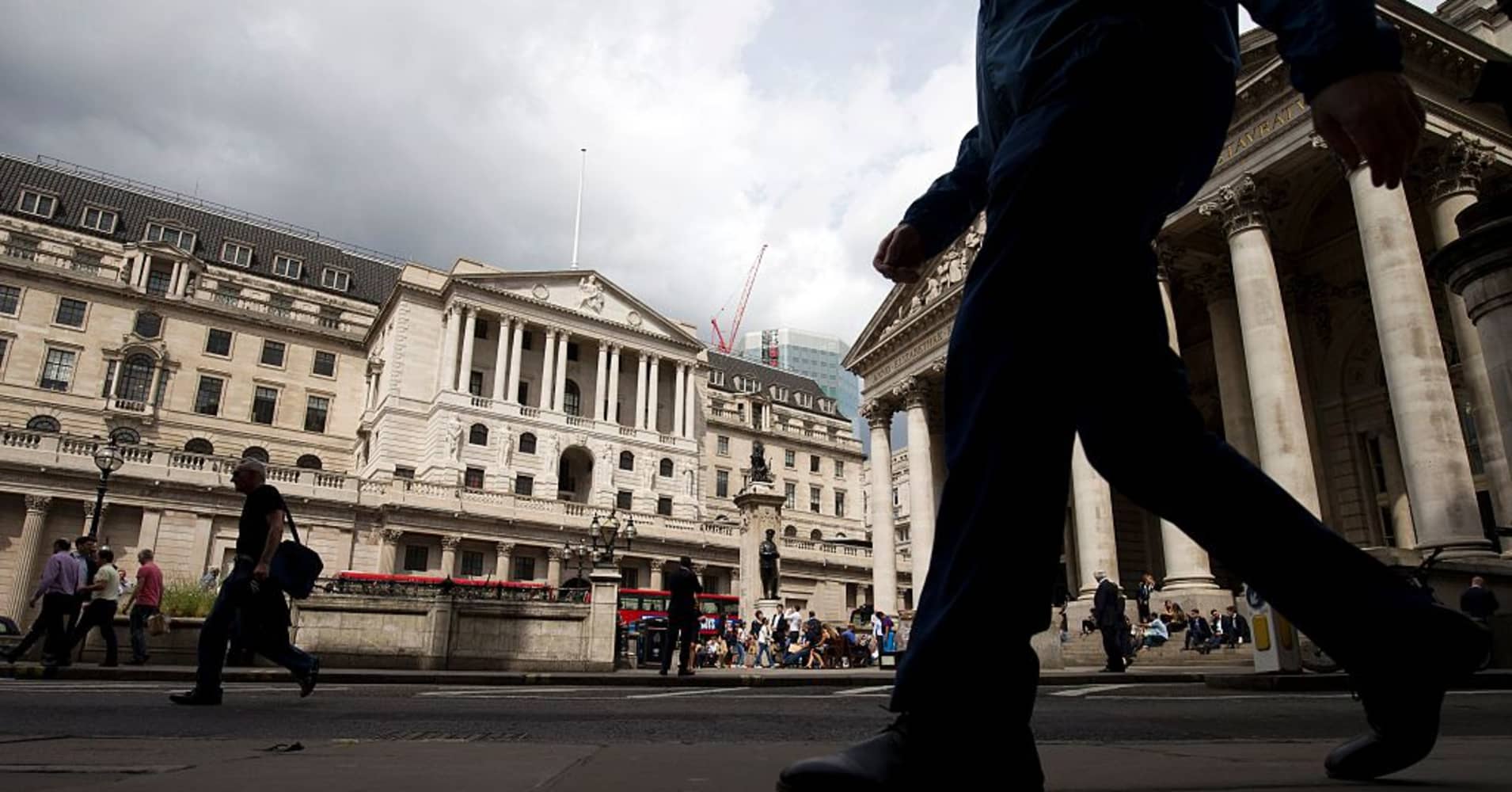
The Bank of England (BOE) held its benchmark interest rates steady on Thursday, with just 50 days to go before the U.K. leaves the European Union.
As widely expected, the BOE's nine-member Monetary Policy Committee (MPC), led by Mark Carney, unanimously voted to leave interest rates unchanged at 0.75 percent.
"U.K. economic growth slowed in late 2018 and appears to have weakened further in early 2019," policymakers at the central bank said.
"This slowdown mainly reflects softer activity abroad and the greater effects from Brexit uncertainties at home," they added.
Sterling fell 0.6 percent to trade at around $1.2860 shortly after midday.
Prime Minister Theresa May is in Brussels to press EU leaders for legally binding changes to the Brexit deal.
The thorny subject of the Irish "backstop" — something of an insurance policy designed to prevent a hard border between the Republic of Ireland and Northern Ireland if there's no trade deal between the U.K. and EU — will be the main topic of debate.
May is seeking changes to the backstop arrangement within the Brexit deal (known formally as the "Withdrawal Agreement") because of widespread objection to it in the U.K. Parliament.
With a transition deal still not on the table, market participants are increasingly worried about the prospect of the world's fifth-largest economy abruptly leaving the bloc without a deal.
Should that happen, the BOE has said it would consider raising rates to offset a likely slump in the value of sterling.
However, most economists believe the Bank is more likely to cut rates to cushion a widely-expected blow to the economy.
The U.K. is expected to leave the bloc at 11:00 p.m. London time on March 29.
The previous change in interest rates in the U.K. came in August last year, when the central bank raised rates by a quarter of a percentage point to their highest level since March 2009.
Elsewhere, the Federal Reserve has signaled to financial markets that its three-year run of interest rate hikes is coming to an end. Meanwhile, the European Central Bank (ECB) has acknowledged a slowdown in the euro zone and China is looking to stimulate its economy after registering its slowest pace of growth in three decades last year.
from Top News & Analysis https://cnb.cx/2HZNik5
No comments:
Post a Comment